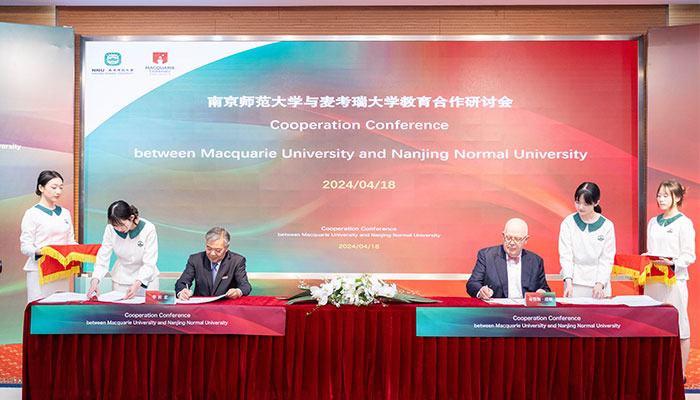- Macquarie University’s Surgical Infection Research Group (SIRG) has discovered that bacteria are a major cause of complications related to breast implants.
- The research, led by SIRG and Associate Professor Anand Deva in collaboration with international experts, also suggests an association of breast implant infection and the onset of a rare cancer – Breast implant associated anaplastic large cell lymphoma or BIA-ALCL.
- The new research is evidence of the Macquarie University Health Sciences Centre’s commitment to solving difficult clinical problems with the aim of improving outcomes for patients.
Pioneering new research out of Macquarie University Health Sciences Centre has unearthed how some of the most serious complications associated with breast implant surgery, which includes the onset of a rare form of lymphoma, are the result of contamination by bacteria attached to the surface of the implant.
The research, published in the prestigious journal, Plastic & Reconstructive Surgery, was led by Macquarie University’s SIRG and Associate Professor Anand Deva, Head of the Discipline of Plastic and Reconstructive Surgery at the Macquarie University Health Sciences Centre (MUHSC), in collaboration with top cancer centers around the world, including MD Anderson Cancer Center in Houston and Peter MacCallum Center in Melbourne.
“For years we’ve known that capsular contracture – or a hardening of the tissue surrounding the breast implant – is the most common reason patients return for corrective surgery. We now understand, through over 10 years of research, that bacteria are to blame,” explains Associate Professor Deva.
“Our research has found that bacteria gain access to the implant’s surface, most commonly at the time the implant is inserted. Once attached to the implant, they secrete a thick sticky glue and become a firmly adherent bacterial biofilm. Biofilm infection can grow and ultimately cause capsular contracture.”
Significantly, the research collaboration has also recently identified a connection between biofilm infection during breast implant surgery and the onset of a rare cancer – a type of lymphoma associated with breast implants. Associate Professor Deva’s team discovered high levels of biofilm contamination in and around these cancer cells, supporting their theory that bacteria are a key factor in the development of breast implant-derived cancer.
“The best way to stop biofilm contamination is through adopting a series of proven surgical strategies to prevent bacteria contaminating the implant during surgery – known as the ‘14-point plan’ ” said Associate Professor Deva.
“This calls, more than ever before, for all surgeons to adopt the 14-point plan to prevent infection – which has been shown in clinical trials to reduce the risk of contracture by a factor of 10. It is imperative that women be proactive in checking such standards are adhered to by those operating on them.”
Internationally-acclaimed for his work to minimise hospital-acquired breast implant infections, Associate Professor Deva was one of a group of specialists to recently join the MUHSC. At MUHSC, Associate Professor Deva will continue his longstanding work on reducing patient infections during surgery under MUHSC’s new model.
“The newly formed MUHSC, with its world class facilities and drive to connect clinical research to better patient outcomes, is embodied in this new research we have undertaken,” said Associate Professor Deva.
“At MUHSC we are very well-positioned to conduct translational research because of the integration of researchers and clinicians, with a state of the art hospital, on campus at Macquarie University.”
Further translational research being undertaken by SIRG is focused on revolutionary anti-bacterial technologies that will prevent implant infection in the first place. This work is being performed in conjunction with both Government and Industry funding, and will lead to new smart implants being developed that are able to repel bacteria and result in a stable, long lifespan for all implants by reducing the risk of biofilm infection.



